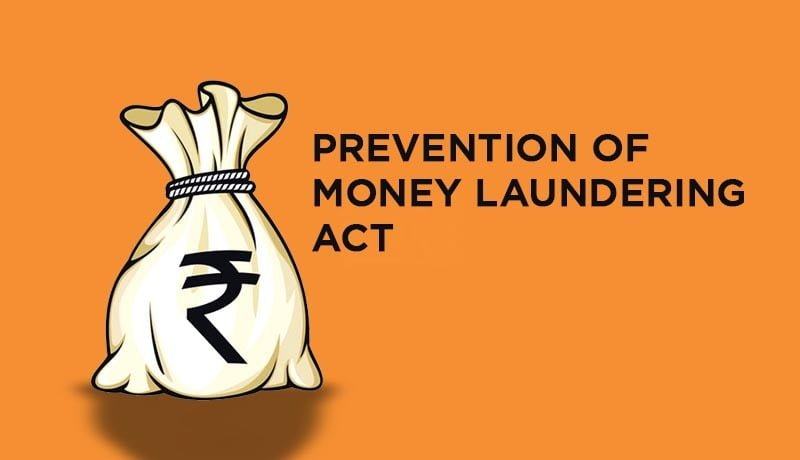Description

Copyright infringement not intended
Context: The Delhi High Court has directed the Union government to expedite steps for appointing a chairperson and other members of the Appellate Authority under the Prevention of Money Laundering Act, 2002 (PMLA). The court gave 8 weeks to the Centre.
Details
- The Court stated that there is a "dire necessity" for establishing several Benches because of the large number of pending cases under the PMLA.
- The court further stated that Section 6(2) of the PMLA calls for the existence of a chairperson and other members. Separate Benches may also be formed, according to the Act.
.jpeg)
Prevention of Money Laundering Act, 2002
- Prevention of Money Laundering Act, 2002 was passed by the Indian parliament to prevent money laundering and to provide for the confiscation of property derived from money laundering. PMLA came into effect on 1st July 2005.
- The PMLA was passed by the Parliament as a result of a global commitment to address the issue of money laundering, which affects financial institutions around the world and has international consequences.
- The Act prescribes that any person found guilty of money laundering shall be jailed from 3 years to 7 years; the maximum punishment may extend to 10 years instead of 7 years.
- The Director or officer above the Deputy Director ranks with the Director's authority can attach property believed to be "proceeds of crime" for 180 days.
- The Adjudicating Authority is the authority appointed by the central government to exercise jurisdiction, powers and authority conferred under PMLA.
- The Adjudicating Authority shall not be bound by the procedure laid down by the Code of Civil Procedure, 1908. Still, it shall be guided by the principles of natural justice and subject to the other provisions of PMLA.
- A person, who is accused of having committed the offence of money laundering, has to prove that the alleged proceeds of crime are lawful property.
- An Appellate Tribunal is a body appointed by Union Government. It has the power to hear appeals against the orders of the Adjudicating Authority and any other authority under the Act.
- objectives:
- To prevent and control money laundering.
- To confiscate and seize the property obtained from the laundered money.
- To deal with any other issue connected with money laundering in India.

Concern
- Enforcement Directorate: The Act allows the government and the Enforcement Directorate (ED) practically infinite authority to issue arrest warrants, make arrests and conduct raids. The ED is not considered to be a "police agency," despite having investigatory powers. The ED's decision to choose which instances to look into is also not entirely clear.
- The burden of Proof: The Act makes getting out on bail nearly impossible and puts the burden of proving one's innocence on the accused rather than the government. The Court made it very clear that the State has a compelling interest in placing severe bail restrictions on those accused of economic crimes.
- Low Conviction rate: Everyone who has gone through a trial claim that the trial itself is punishment, and that any assets you have can be seized while the case is pending. The conviction rate under this law is very low, less than 5%.
- The protections against property attachment are strong in theory, but in practice, they are ineffective and do not permit even reasonable exceptions that would be required to maintain your dignity or carry on with your business or livelihood.
|
Enforcement Directorate
● In 1956, Enforcement Directorate was founded as the "Enforcement Unit" within the Department of Economic Affairs under the Ministry of Finance.
● The Enforcement Directorate investigate cases related to;
- Economic crimes.
- Violations of foreign exchange laws.
● At present Enforcement Directorate deals with 4 laws
- The Prevention of Money Laundering Act, 2002 (PMLA)
- The Foreign Exchange Management Act, 1999 (FEMA)
- The Fugitive Economic Offenders Act, 2018 (FEOA)
- Conservation of Foreign Exchange and Prevention of Smuggling Activities Act, 1974 (COFEPOSA)
● Currently, the Enforcement Directorate (ED) is administered by the Internal Security Department under the Ministry of Home Affairs.
|
|
PRACTICE QUESTION
Q. Analyze the effectiveness of the Prevention of Money Laundering Act (PMLA) in reducing the threat of money laundering.
|

https://www.thehindu.com/news/cities/Delhi/expedite-steps-to-appoint-appellate-authority-members-delhi-hc-tells-centre/article66568153.ece











